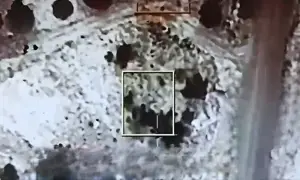Rainwater contaminated injection that affected vision in Punjab patients: minister
3 min readRainwater had contaminated the injection which allegedly caused loss of vision in Punjab patients, caretaker Punjab Health Minister Javed Akram said on Monday.
“Rain and sewage entered the compartment and contaminated the medicines. This is how the infection was caused,” he said, along with caretaker health and population welfare minister Jamal Nasir, at a press conference in Lahore that was centered on the inquiry into the injection that allegedly affected vision.
Last month, the provincial government imposed a two-week ban on the sale and usage of an injection until quality check results were obtained.
Several diabetic patients in Lahore, Kasur and Jhang districts were administered Avastin injections to address retinal damage, but the doses led to severe infections. The issue first surfaced when several cases of the drug’s reaction were reported from the Kasur district.
The injection was named ‘Avastin’ and the government had formed a five-member committee to investigate the loss of eyesight among patients.
The patients developed a life-threatening disease, an inflammation of the inner coats of the eye, which led to loss of vision.
“We think this batch was shifted when there was heavy rainfall in Lahore and the samples given that day weren’t properly packed or checked,” Akram said and added that the medicine was transported in a Daewoo bus, which was not allowed under the standard operating procedures.
He went on to add that a forensic analysis of the vehicle found that the distance between the lower compartment of the bus and the ground was less which led to rainwater entering the part of the vehicle where luggage/cargo was stored.
Also, read this
Several patients lose vision after receiving Avastin injection in Punjab’s Burewala
Avastin injected in victims’ eyes without informed consent, minister reveals
“We also interviewed the driver who said he could not access the motorway due to water and went via the Multan road which took longer to reach.”
He added that officials had also obtained previous records that confirmed that medicines were being transported in public vehicles without any temperature control.
While speaking about the matter, Akram said it was the second most complicated inquiry of his life after the ISO tab matter.
At least 66 people – out of the 72 reported – were affected due to the injection.
The provincial health minister added that the medicine was from a reputable company Roche. He added that many local and international companies were involved in the investigation.
The inquiry committee was of the view that the change of sourcing site of the medicine from Switzerland to Germany might have caused anything. But it was proved wrong after the pharmaceutical company shared transportation documents and cold chain data, said the minister.
“When we acquired data there was no mistake. So we will release the recalled batches,” he said as they were not contaminated.
For the latest news, follow us on Twitter @Aaj_Urdu. We are also on Facebook, Instagram and YouTube.





















Comments are closed on this story.